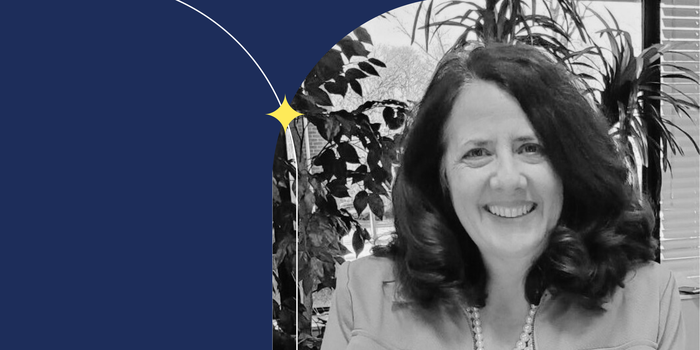
Patty Mims has many passions: the science of geography, education, and diversity, equity, and inclusion. And over the past two decades, she’s had the opportunity to pursue them all at the geographic information system (GIS) software company Esri.
As the Corporate Director of Global National Government at Esri, Mims helped create fellowships at the company’s regional offices, where selected employees receive full-time scholarships for undergraduate or graduate degrees. She’s also established partnerships with K-12 schools and historically Black colleges and universities (HBCUs) to offer technical training, career coaching, and internship opportunities.
“It’s our responsibility to create an inclusive GIS community that reflects the world that we live in,” says Mims, who works in the Washington, D.C. office. “It is also our responsibility to get students excited about GIS and prepare them for opportunities in the geospatial industry.”
Here, Mims shares what’s kept her at Esri for more than 20 years, how the company has helped her grow, and tips for succeeding as a woman in leadership.
What led to your job at Esri back in 2002? How did you know the company would be a good fit and what has kept you there?
I was drawn to Esri because of the mission and the people. Esri’s mission is to build the best geospatial software, support the work of our customers, and create meaningful careers for our employees. I enjoy working for a software company because as technology evolves, you are on a path of continuous learning and innovation, and that is exciting to me. I learn from within Esri, but I also learn from our partners and customers since they are also developing.
What are you responsible for as the Corporate Director of Global National Government?
I lead a team focused on our work with various departments within global governments and the U.S. Federal Government, as well as customers within sectors like nonprofits, higher education, public safety, imagery and remote sensing, and government policy and equity. We work every day to ensure our customers are successful in the use of geospatial technology. As an Esri corporate director, I am responsible for helping to lead the strategy and vision across the company.
What are you currently working on that is inspiring you?
Esri just signed a memorandum of understanding with the NAACP. Maps have played a critical role in policies that impact the equity of the distribution of resources. Using data-driven maps to make decisions for resources can help prevent systemic inequalities. I believe the partnership between Esri and NAACP can lead to changes that will make real impacts on decisions that will have positive outcomes for people and communities.
You started at Esri as an account manager and worked your way up to a leadership role. How did Esri support and encourage your growth?
Esri has been very supportive of my career growth. I have held five positions over my career at Esri—account manager, team lead, manager, deputy director, and director. I was always encouraged to think outside the box, take on new challenges, and re-envision the way that we work. Collaboration and learning were keys to success, and Esri provided resources I needed to accomplish those things. I was given the opportunity to lead a team, and as part of this, I was able to not only build structure and organization around the team, but also build a community of collaboration and sharing for our customers.
We understand you’re passionate about education and have helped bring the Esri fellowship program to each regional office. What impact does the fellowship have?
The opportunity for continued education is extremely important to me. The fellowships that Esri now offers at our Washington, D.C., and St. Louis regional offices are the results of partnerships with the University of Maryland and St. Louis University. Not only do our employees have an opportunity to continue to learn, but we also build important collaboration points with each of these universities and our communities. We provide two-way learning where Esri is also offering technology transfer.
What is the biggest challenge you’ve faced as a woman leader in a male-dominated industry, and how have you overcome it?
I have been very fortunate to have had managers and leaders who treated me as an equal throughout my career, both before and while at Esri. I would say some lessons I’ve learned are to believe in yourself and know that your opinion does matter, work hard and keep your commitments, and be respectful of others and ensure that it’s clear that you want to be respected as well.
How do you maintain work-life balance? What company benefits help you with this?
Work-life balance is a priority for me, and I highly encourage it for everyone on my team. Your life should have a balanced focus on your work, yourself, your family, and your community, which leads to more productivity and creativity. Esri offers a paid-by-the-hour structure for pay allowing for flexibility around our work time.
What is something most people would be surprised to learn about you?
I grew up on a family-owned farm, and I was part of the first generation to attend college. We worked hard and had fun. We were resourceful, and we were continuously adapting to weather, markets, and other factors. If it was broken, we fixed it. We helped our neighbors and collaborated, so we were all successful. These lessons I learned as a child have directly impacted the way that I work now and lead my team.